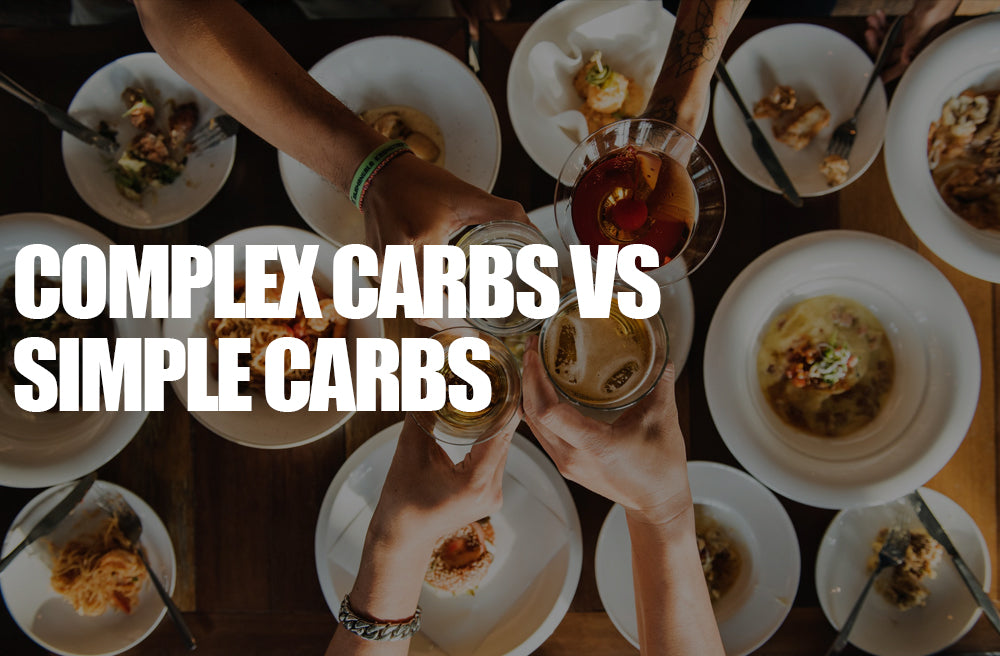Home
News
What are Macros and How Do You Track Them?
What are Macros and How Do You Track Them?
September 30, 2018

It seems that recently our attention has shifted from counting calories to counting macronutrients. It may seem trendy and tempting to do when everyone is talking about macros, hitting them, counting them, and indulging in desserts because it fits your macros. If you are trying to get healthier, why would you even think about eating pizza or ice cream? We may have a different issue to asses here like mindset and prioritizing goals. If It Fits Your Macros (IIFYM), has become extremely popular over the last 5 years, especially for those who are “flexible” dieters. Counting macros, the macro diet, IIFYM, can be very effective but most times lacks a very important piece…QUALITY MACRONUTRIENTS.
WHAT ARE MACROS?
Macronutrients, or macros, are the fundamental components that make up all the food we eat: protein, carbohydrates, and fats. Each plays its unique part in the body. To achieve balanced overall well-being and to accomplish your health and fitness, you need to eat the right amount of each macronutrient.
PROTEIN
Even if you're not weight lifting, that doesn't necessarily mean muscles don't need to be fueled. Sometimes we focus way too much on the carbohydrates, and we forget that protein is responsible for muscle growth and recovery. Protein helps to build and repair tissues especially when tearing them during workouts.
Foods high in protein can be:
Eggs, lentils, quinoa, chicken, beef, fish, cottage cheese, turkey, Greek yogurt, tofu, etc. You can also take it in the form of a protein shake.
IsoWurx is an all in one complete bio-available protein, containing all of the essential and non-essential amino acids. These amino acids are in charge of preventing muscle tissue breakdown. In addition, it contains cysteine, protecting the cells from free-radical damage, and supporting the entire immune system. Iso Wurx is delicious and the protein of choice to help you recover and build lean muscle.
It delivers vital nutrients and amino acids needed to repair damaged muscle tissue.
For the most part, the majority of people don’t consume nearly enough protein to stimulate muscle growth. The amount of daily activity, or calories burned, exceed the amount of protein consumption. In general, for most people trying to build muscle, you want to be eating anywhere from 1 to 1.5 grams of protein per pound of body weight.
CARBOHYDRATES
The body’s preferred energy is usually carbohydrates. It’s the primary fuel that gets us going throughout the day. Occasionally when we start restricting cab intake or not eating our usual amount, we can feel lethargic and depleted of energy. Eating too much can spike your hunger through the roof and set the mood for the rest of day of wanting to eat all day. Foods high in carbohydrates can be:
Sweet potato, brown rice, bananas, quinoa, yucca, legumes, etc.
Quality Carbs – Eating carbohydrates doesn’t mean any kind of carb. Clean high quality carbohydrates are important to support a sustainable outcome. You will lose all your gains from dirty bulking, but the nutrients in quality food will be absorbed and used accordingly.
Fiber- Prioritizing high fiber carbs is crucial. Vegetables are a carbohydrate and eating an adequate amount of starchy nutrient dense carbs is important. Plus it will make you feel fuller quicker and for a longer period of time. Carbs help restore glycogen level from being depleted after an intense workout. Starchy vegetables are full in antioxidants too, fighting inflammation and replenishing muscles.
FATS
Another source of energy is fat. This macronutrient balances your hormones and immune system. You have to keep close attention to your fat intake, because if you eat more than your body requires, you just might end up storing it until you start using it as fuel. Like all macronutrients, quality is really important here to. Try staying away from processed packaged fats. Foods high in fats can be:
Fatty fish, nuts, olive oil, eggs, avocados, chia seeds, etc.
HOW DO YOU COUNT MACROS?
Keeping track of your daily macronutrient is important. Getting a balanced amount of protein, carbs, and fats will help guide your diet in the right direction. You can count macros to lose weight and even put on lean muscle mass. All your meals should have a good balance of these 3 macronutrients. Instead of counting total number of calories, with IIFYM, you count the grams of each macronutrient in the food you eat. If you stick to whatever your macro target, based on your goals, your daily caloric intake will fall within target too. Protein and carbohydrates contain about 4 calories per gram; fats contain 9 calories per gram. There is also some great apps you can use to track your macros and calories for you. A great app like My Fitness Pal will save you a lot of time look at foods supplement facts. Just simply scan a products barcode and the app will pull from a database of foods and add it into your daily marcos breakdown.
DOES COUNTING MACROS WORK?
The thing that works the most from tracking macros is the mindset it creates. You are in an environment in which no food groups is off limits and helping keep cortisol levels in check. There are fewer things that are prohibited making it a more sustainable model for weight loss. Restricting foods makes you crave them more, and banning food groups like carbs or fats can potentially make you deficient in other nutrients. Prohibiting foods is what spikes cortisol levels, making you stress and sometimes creating a binge session.
IIFYM lets you in a sense cheat all day, with wrecking your nutrition. Again, if you are having nutrient dense foods, your body will be getting everything it needs to be fueled for the day through the macronutrients you are tracking. Even though this type of dieting doesn’t ban any foods, you don’t want to spend all your macros for the day on processed fast food.
MICROS MATTER
Even though IIFYM is planned entirely on macronutrients, it is important that we are getting in our micronutrients too. We have already explained what macronutrients are, so let’s dive a little into micronutrients. Micros are the nutrients that we require in smaller amounts, like minerals, vitamins and fiber. We can’t emphasize this enough, but if you are eating macronutrients from whole foods, your micronutrient intake is probably balanced too. But if you are eating a lot of synthetic processed foods, like protein cookies and protein bars, think of adding leafy vegetables that are naturally loaded with micronutrients.
IN CONCLUSION
If you are solely dialed into your macros and that alone, then you are most likely missing out the piece of overall well-being. You can definitely benefit from counting macros as part of your nutrition method, but remember to keep your macros rich in nutrients. This will help you sustain all your gains from your balanced diet.
Calling it a cheat meal won’t get our mindset in the right direction. Cheating with low quality foods isn’t going to help you get in the right direction. We do need to start shifting our self-talk into rewarding ourselves, rather than cheating ourselves. If you are working so hard towards your goals why would you cheat yourself? Instead, reward yourself with something that is delicious, but also high in quality nutrients.
Results may vary. These statements have not been evaluated by the Food and Drug Administration. This product is not intended to diagnose, treat, cure, or prevent any disease.
References:
-Timko, C. A., & Perone, J. (2005). Rigid and flexible control of eating behavior in a college population. Eating Behaviors, 6(2), 119-125.
-Yoshiharu Shimomura, et al. “Nutraceutical Effects of Branched-Chain Amino Acids on Skeletal Muscle.” J. Nutr. February 2006 vol. 136 no. 2 529S-532S
-Gower, B. A., & Goss, A. M. (2015). A lower-carbohydrate, higher-fat diet reduces abdominal and intermuscular fat and increases insulin sensitivity in adults at risk of type 2 diabetes. The Journal of Nutrition, 145(1), 177S-183S.
-Foster, G. ìA Randomized Trial of a Low-carbohydrate Diet for Obesity.î ACC Current Journal Review 12.4 (2003): 29.
-Ivy, J. L. (1998). Glycogen resynthesis after exercise: effect of carbohydrate intake. International Journal of Sports Medicine, 19(S 2), S142-S145.
Leave a comment
Comments will be approved before showing up.






